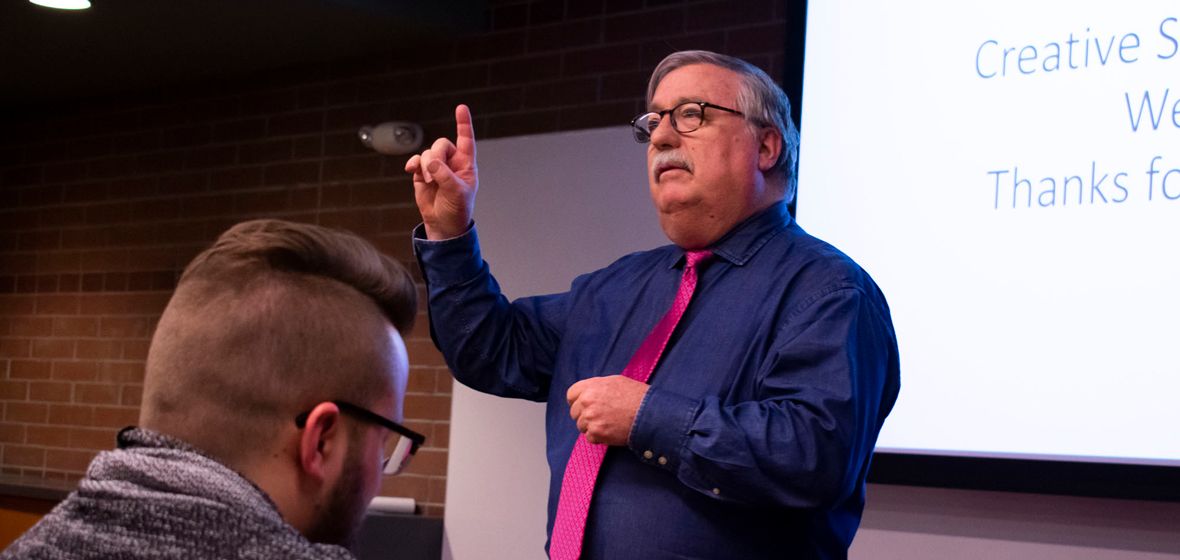In most of the years that Professor Bob Felten has taught his Creative Solutions class, he’s included a video element in their final. This year, however, he decided on something he hadn’t done before: he asked his students to create public service announcements (PSAs).
“This year I changed it a little bit,” he said. “I asked the students, if they were doing something in the public service area, what they would focus on.”
The final result was eight public service announcement videos, covering suicide awareness, female empowerment, social media addiction and opioid abuse.
“Part of the reason for the assignment is the world is video these days,” Felten said.
“It’s really important to get them thinking about the use of video, even in what is a pretty traditional expression, a public service announcement.”
The students were grouped into four teams. They each created two PSAs of different lengths.
Students chose their own topics. Allowing students to pick what they wanted to work on let them access their emotions in their work, Felten said.
Student Mirelle Schwalbach and her team chose social media addiction.
“Social media seems to run our world nowadays, and as we saw more and more people around us in our university community struggle with healthy social media use, we thought it would be a good idea to create a PSA about it.”
Felten said the social media PSA was especially interesting since it evolved to include elements of body image. In the short video, a young woman can be seen using an app on her phone to alter her body, saying she often takes dozens of photos before finding the perfect one.
“We wanted it to be more personable so our target audience (college women) could feel that they could connect to it and relate to it,” Schwalbach said. “We wanted a certain reaction out of our viewers, and in the end, we were able to achieve that.”
Ana Poulsen worked on the suicide awareness PSA. Not only has suicide personally affected her, she said, but she also felt there were not enough powerful PSAs aimed at informing mentally ill people about how to get the help they may need.
“One of my life goals is to make people aware of the severity of mental illness and the threats it can possess if left untreated,” Poulsen said. “I want people to treat suicide and mental illness like they would treat cancer or any other physical illness.”
In their PSA, everyday scenes are seen highlighting a single person, like a student in class or two friends playing basketball at a gym. In the next sequence, the same scenes are repeated but with one person missing.
Felten said he received mostly positive feedback from the class.
“They were proud of their work, almost without exception.”
He did mention that the students said wished they had more time for the final project, something Schwalbach and Poulsen confirmed.
“If I had to do this assignment again, I would work to make it even more powerful than it is,” Poulsen said. “With a topic as important and heavy as suicide, the sky is the limit and there are endless creative ideas to present this topic in an impactful and meaningful way.”
Schwalbach said the challenge was in the time limit. “We wanted to make it emotional but realistic. I was proud with our end results.”
To see the students' PSAs, head over to the Reynolds School of Journalism Vimeo page.












